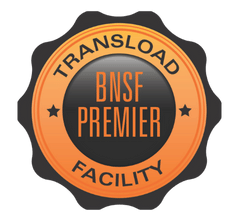The supply chain of the paper industry is an integral core of modern society, contributing to everything from books to packaging products and commercial toilet paper. However, the process of turning raw materials into usable paper involves a complex supply chain that requires careful coordination. With challenges like supply shortages and increased demand, the paper supply chain faces many logistical hurdles.
Here we’ll walk you through each step of the paper industry’s supply chain, from raw material sourcing to paper warehousing at Atlas Columbia Warehouse (ACW).
Raw Material Sourcing and Pulp Production
The paper supply chain begins with the procurement of raw materials. The primary source is wood pulp, derived from trees like pine, spruce, and eucalyptus. Sustainable forestry practices minimize the environmental impacts of deforestation. Some companies use recycled paper, which helps reduce the need for virgin wood pulp, cutting down on raw material costs and environmental damage.
Once harvested, these raw materials are transported to pulp mills, where the paper-making process begins. There, wood chips are transformed into pulp through mechanical or chemical processes. This pulp is the base material for most paper products, from printing papers to packaging.
Supply Chain Challenges
One of the key challenges here is managing supply shortages of raw materials, which have been exacerbated by recent global events like the COVID-19 pandemic. These shortages lead to delays in production lines and often increase demand for alternative materials, driving up raw material costs. Efficient strategic planning is critical to ensuring a steady flow of raw materials, as disruptions at this early stage can affect the entire supply chain.
Paper Production and Processing
Once the pulp is ready, it is processed into large rolls of paper or cut into sheets depending on the end-use. These paper products range from writing documents to packaging products and commercial toilet paper.
After the initial production, paper often undergoes finishing processes, such as coating, cutting, and adding treatments to create specialized products for different markets. For instance, paper used in commercial printing may be coated for high-quality finishes, while paper for the packaging industry needs added strength.
Production and Market Variability
The paper market is highly influenced by demand variability. A surge in demand for products like toilet paper during the pandemic created supply chain issues that many manufacturers were unprepared for. These disruptions led to price increases for both raw materials and finished paper products. Managing these fluctuations requires strategic partnerships with supplier companies, freight forwarders, and logistics providers to ensure that production lines remain uninterrupted.
Freight Transportation and Logistics
Once paper products are manufactured, the next step in the supply chain involves freight transportation. Due to the bulk and weight of paper products, moving them efficiently is a logistical challenge. 3PL (third-party logistics) companies manage transportation, utilizing trucks, rail, and ships for long-distance deliveries.
Paper suppliers depend on freight companies to move large paper rolls, stacks of sheets, or packaging products from paper mills to warehousing facilities or directly to customers. Intermodal transportation, which combines multiple modes of transport like truck and rail, is often used to optimize the cost of shipping these heavy products over long distances.
Challenges in Transportation
Labor shortages, rising fuel costs, and infrastructure constraints often lead to delays in freight transportation. These supply chain issues can disrupt the timely delivery of paper products, especially during periods of strong demand. 3PL logistics providers offer solutions like real-time tracking and route optimization to mitigate these issues, ensuring that products arrive on time and at the lowest cost possible.
Paper Warehousing and Distribution at Atlas Columbia Warehouse
Once paper products have been transported to their designated locations, they are stored and distributed from specialized paper warehousing facilities like Atlas Columbia Warehouse (ACW), located at the Port of Tacoma. ACW is one of the leading warehousing facilities for paper manufacturers in the Pulp and Paper Industry. ACW provides over 300,000 square feet of storage space designed to handle large paper rolls, packaging products, and other paper-based goods.
However, warehousing isn’t just about storage—it also plays a critical role in distribution. Warehouses like ACW serve as central hubs, ensuring that paper products can be efficiently distributed to businesses and consumers when needed. Properly managed paper warehousing helps reduce the risk of supply shortages by maintaining a steady stock of paper products, ready for shipment to the next point in the supply chain.
Climate-Controlled Storage and Inventory Management
Our paper warehousing facility is equipped with climate-controlled environments to preserve the quality of stored paper products. Paper is sensitive to humidity and temperature, making proper storage essential to prevent damage. Additionally, inventory management systems help keep track of available stock, allowing manufacturers to respond quickly to changes in market demand.
Distribution and Last-Mile Delivery
After paper products are stored, the next step is distribution, where they are transported to retailers, packaging companies, printers, or directly to consumers. ACW also provides services like transloading and cross-docking, which streamline the distribution process by reducing handling times and ensuring that paper products move efficiently from warehouse to market.
By combining efficient warehousing with robust distribution strategies, companies can ensure that they meet strong demand without experiencing delays or stock shortages. The seamless integration of storage and distribution at facilities like Atlas Columbia Warehouse plays a vital role in keeping the paper supply chain responsive and adaptable to changes in demand.
Ensure your paper supply chain runs smoothly with Atlas Columbia Warehouse, part of the Stryder Group of Companies, for expert paper warehousing, transportation, and distribution services. Consistently guaranteeing climate-controlled storage, efficient logistics, and timely deliveries.
Contact us at 253-272-9320 for services or book a visit at 922 E 11th St, Ste 300, Tacoma, WA 98421, United States to strengthen your paper product supply chain today.





